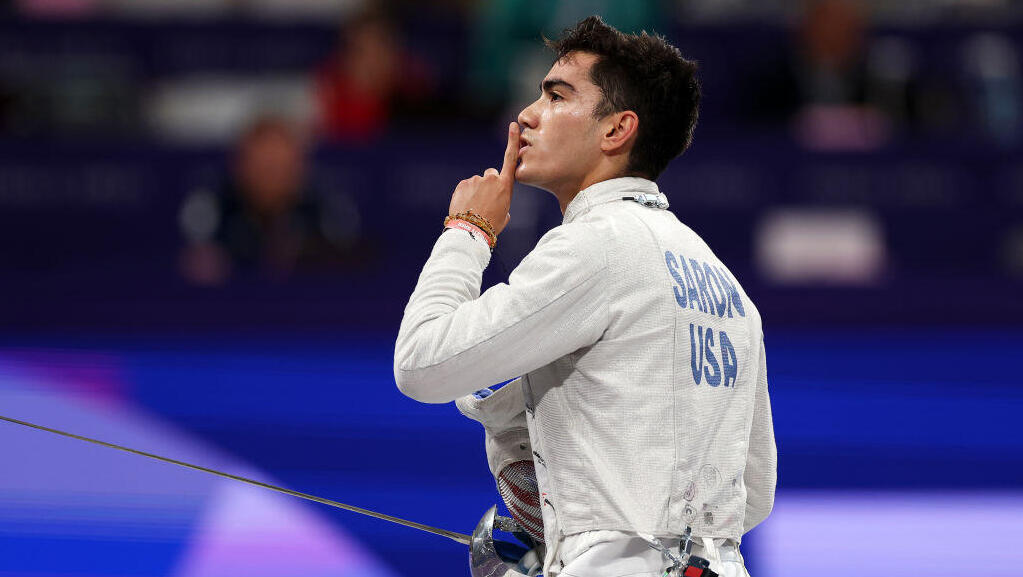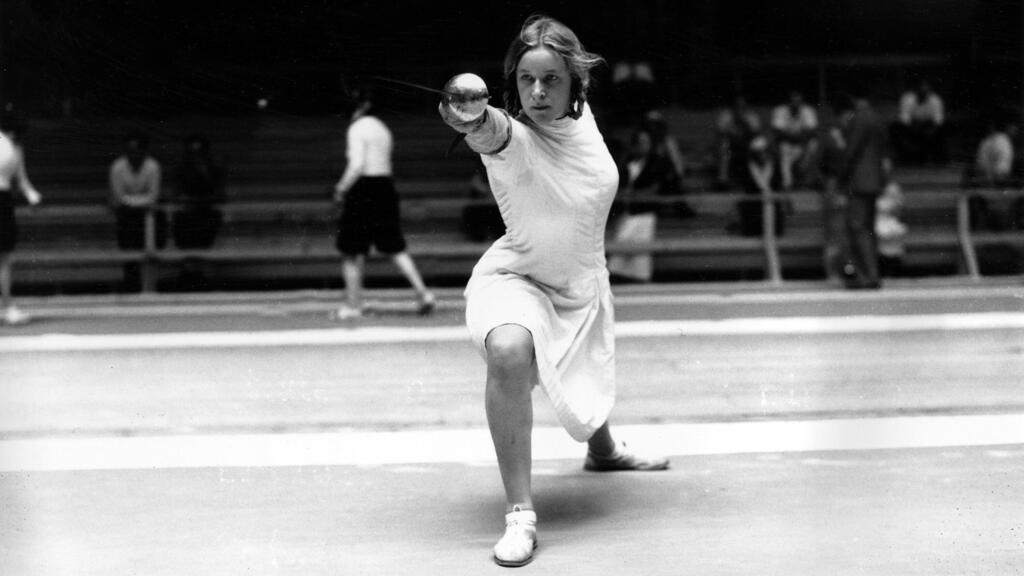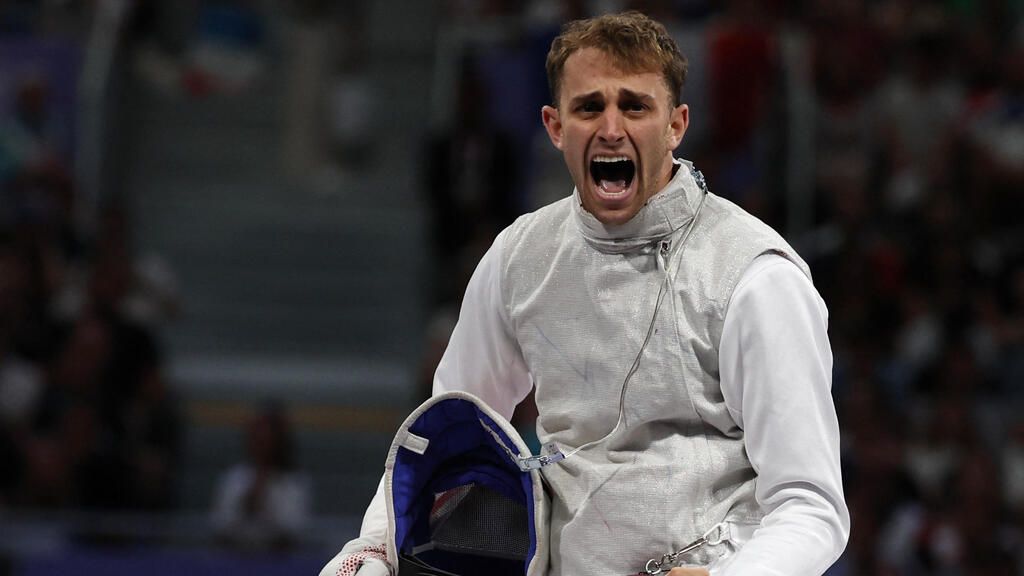Getting your Trinity Audio player ready...
The Israeli delegation’s success in the 2024 Paris Olympics has almost turned into a myth. Another Jewish mystery at the Olympics hasn't been fully deciphered, however: how is it that six out of the 20 members of the U.S. fencing team are Jewish?
This is a completely disproportionate representation compared to the Jewish community's size in the U.S. population, which stands at 2.4%, including those who identify as Jewish even if they don't fit the religious definition.
There isn’t a single explanation for the phenomenon. As can be seen in almost every sport, it's a combination of tradition and socio-economic conditions. Firstly, fencing has a very rich Jewish history and was a central sport in the former Soviet Union, from which many Jewish coaches and fencers emigrated to the U.S. during the mass immigration of the 1990s.
On the other hand, fencing is a very small sport niche in the U.S., requiring one to live in large population centers and be connected to a community with a tradition — two conditions that American Jews meet well.
Mitchell Saron, 23, one of the Olympic fencers, told the Jewish news outlet JTA that due to fencing’s lower status compared to other sports, people tend to join it mainly through word of mouth. "I think if you hear someone from your tribe is getting to fence here or there, that can spread very fast," Saron, who’s both Filipino-American and Jewish, said.
Fencing was especially popular among Jewish students in Europe at the end of the 19th and the beginning of the 20th century. It was seen as a way to gain strength and confidence in the face of rampant antisemitism. For example, Theodor Herzl was a skilled fencer.
The lasting connection of Jews to fencing brought Olympic medals to several countries, mainly before World War II, until the rise of Nazi Germany.
For example, Helene Mayer, considered the greatest Jewish fencer of all time, has a fascinating, tragic, and controversial story. Mayer won gold at the 1928 Amsterdam Olympics and bronze in Los Angeles in 1932. A year later, Adolf Hitler rose to power, and Mayer became a target of persecution.
She was invited to the German team for the 1936 Berlin Olympics so that Hitler could use her for political purposes. According to one version, Mayer agreed under pressure after her family received a promise of protection.
She won a silver medal in Berlin, and the Nazis, of course, used her for their propaganda. After the Olympics, Mayer left Germany and eventually settled in the U.S. Her story remained controversial for many years, but it's essential to remember its context.
Eighty years later, Jews can compete freely everywhere, including at the Grand Palais in Paris, which under Nazi rule served as a propaganda machine. But in the U.S., at least, it’s unclear how much longer the Jewish connection to fencing will continue.
Yury Gelman, a leading fencer in Ukraine and the coach of the U.S. team since the Sydney 2000 Olympics, told JTA that he sees fewer and fewer Jews in the sport. "I don't know why," Gelman said, "but for sure it’s much less."
The current six Jewish athletes didn’t perform particularly well in Paris, but there are some excellent fencers among them. For example, Eli Dershwitz, 28, who won last year’s world championship in Sabre and is competing in his third Olympics; Elizabeth Tartakovsky, 24, a bronze medalist at the world championships, whose two Jewish grandparents were fencers and whose parents emigrated from Kyiv in the early 1990s.
Nick Itkin, 24, who in Paris became the first Jewish fencer to win an individual medal (bronze) and is also a two-time U.S. collegiate champion, who inherited his love of fencing from his father, Misha, who also emigrated from Ukraine; Maia Weintraub, 21, the 2022 collegiate champion, and Jackie Dubrovich, 29, for whom Paris is her second Olympics.





